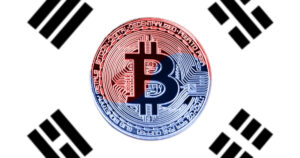**Unlocking South Korea’s Crypto Future: Political Parties Offer Incentives**
In a strategic move to appeal to the tech-savvy electorate, South Korea’s major political parties are stepping into the world of cryptocurrency with enticing policy proposals. These initiatives not only highlight the increasing influence of digital assets in politics but also showcase how they can impact voter sentiment in the upcoming parliamentary elections.
**Democratic Party’s Push for ETF Liberalization**
The Democratic Party, currently in opposition, is making waves with a policy proposal aimed at lifting restrictions on both domestic and international exchange-traded funds (ETFs) that include cryptocurrency tokens, such as Bitcoin ETFs. By liberalizing ETF regulations, the party hopes to energize the country’s financial technology sector and provide investors with more diversified and regulated investment options. This move could potentially revolutionize the crypto market in South Korea by opening up avenues for traditional investors to delve into cryptocurrencies within a familiar and regulated framework.
**People Power Party’s Tax Delay on Digital Assets**
On the other side of the political spectrum, President Yoon Suk Yeol’s ruling People Power Party is advocating for a delay in the imposition of taxes on profits generated from digital assets. This tax policy adjustment, if implemented, would postpone the planned tax start date, offering relief to crypto investors and traders. The party believes that this delay will not only benefit individual investors but also spur growth in the domestic crypto industry.
**Global Implications and Regulatory Challenges**
The proposed cryptocurrency policies in South Korea are part of a larger global trend where governments and financial regulators are navigating the integration of digital assets into their economies. The United States, for example, has witnessed the launch of multiple Bitcoin ETFs, while regulatory bodies like the Securities and Exchange Commission (SEC) are closely monitoring the crypto space. South Korea’s stance on crypto ETFs and taxation will undoubtedly reverberate on the international stage, influencing markets and regulators alike.
However, despite the promising incentives, challenges lie ahead on the path to implementing these crypto-friendly policies. Regulatory concerns surrounding investor protection and market stability remain paramount. Furthermore, the inherent volatility of the cryptocurrency market presents a risk that policymakers must tread carefully to avoid potential financial repercussions.
**Shaping South Korea’s Economic Future**
As South Korea’s political parties strategically leverage crypto-related incentives to secure electoral support, the significance of digital assets in shaping the country’s economic landscape becomes apparent. The Democratic Party’s push for ETF liberalization and the People Power Party’s proposed tax delay on digital asset profits underscore the growing role of cryptocurrency in South Korean politics, signaling its ability to influence voters and drive policy decisions.
At Extreme Investor Network, we stay ahead of the curve when it comes to crypto trends and developments. Stay tuned for more insightful articles and analyses on the intersection of politics and cryptocurrency in South Korea and beyond.
*Image source: Shutterstock*


